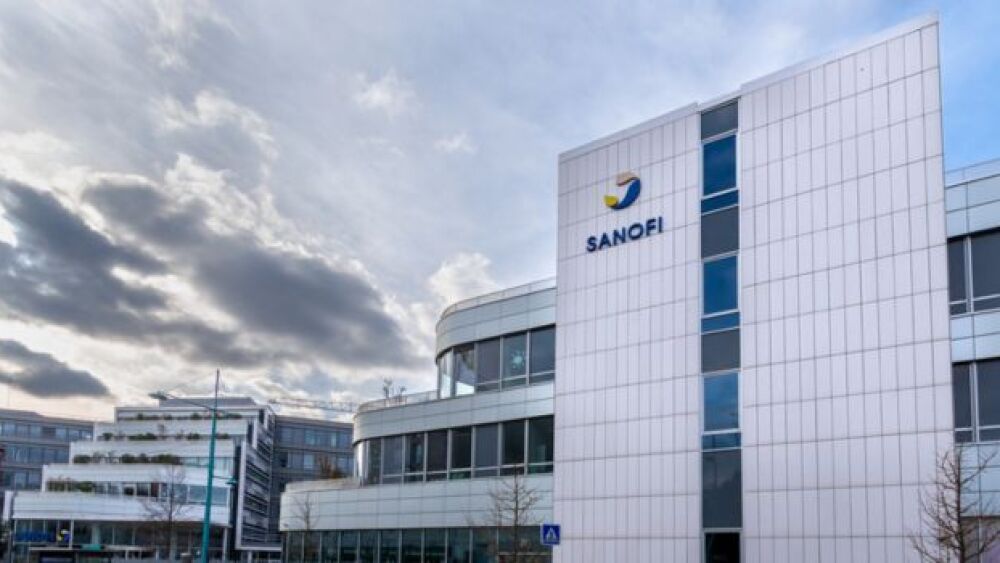The French pharma paid $500 million upfront, with up to $1 billion in future milestone payments, to co-develop and co-commercialize Teva’s Phase II anti-TL1A antibody for inflammatory bowel disease.
Pictured: Sanofi headquarters/iStock, HJBC
In a potential challenge to Merck and Pfizer, French drugmaker Sanofi announced Wednesday that it is teaming up with Israel-based Teva Pharmaceuticals to co-develop an anti-TL1A therapeutic for inflammatory bowel disease in a deal worth up to $1.5 billion.
Teva’s asset is already in Phase IIb clinical trials for two types of inflammatory bowel disease (IBD), ulcerative colitis and Crohn’s disease. TEV ‘574 is part of a newer class of therapies targeting TL1A, a member of the tumor necrosis factor family abnormally expressed in autoimmune diseases like IBD, rheumatoid arthritis, psoriasis and other conditions. Recent studies have shown it’s involved in both the development and pathogenesis of these diseases.
Sanofi is paying Teva $500 million upfront to co-develop and co-commercialize TEV ‘574, believing the therapy “could emerge as a best-in-class option for people living with serious gastrointestinal diseases,” CEO Paul Hudson said in a statement.
Another $1 billion is on the line for Teva in potential development and launch milestones. Sanofi will take the lead in development if the asset reaches Phase III. Interim results from the current Phase II study are expected in September 2024.
In the IBD space, competition is heating up among Big Pharma focused on therapeutics targeting TL1A.
In June 2023, Merck finalized a $10.8 billion buy of Prometheus Biosciences to get its hands on five immune-mediated disease assets. The lead candidate is an anti-TL1A monoclonal antibody (mAb) entering a Phase III placebo-controlled study for Crohn’s and ulcerative colitis (UC), which is beginning later this month.
A Phase II study of the mAb showed 26.5% of patients with moderately-to-severely active UC reached clinical remission after 12 weeks, compared to 1.5% of those on placebo. The Crohn’s trial posted even better response rates with nearly half of patients with moderately-to-severely active disease achieving clinical remission.
In December 2022, Pfizer and Roivant Sciences teamed to launch another Vant dedicated initially to RVT-3101, a TL1A-targeting mAb for ulcerative colitis. A Phase II chronic period study in UC reported improved clinical remission rates compared to previous shorter trials.
The deal with Teva is Sanofi’s second collaboration announced this week. The French company on Tuesday said it is teaming up with J&J’s Janssen to develop and commercialize a Phase III vaccine candidate for E. coli. Sanofi is paying Janssen $175 million upfront, with the potential for future undisclosed milestone payments.
Kate Goodwin is a freelance life science writer based in Des Moines, Iowa. She can be reached at kate.goodwin@biospace.com and on LinkedIn.






